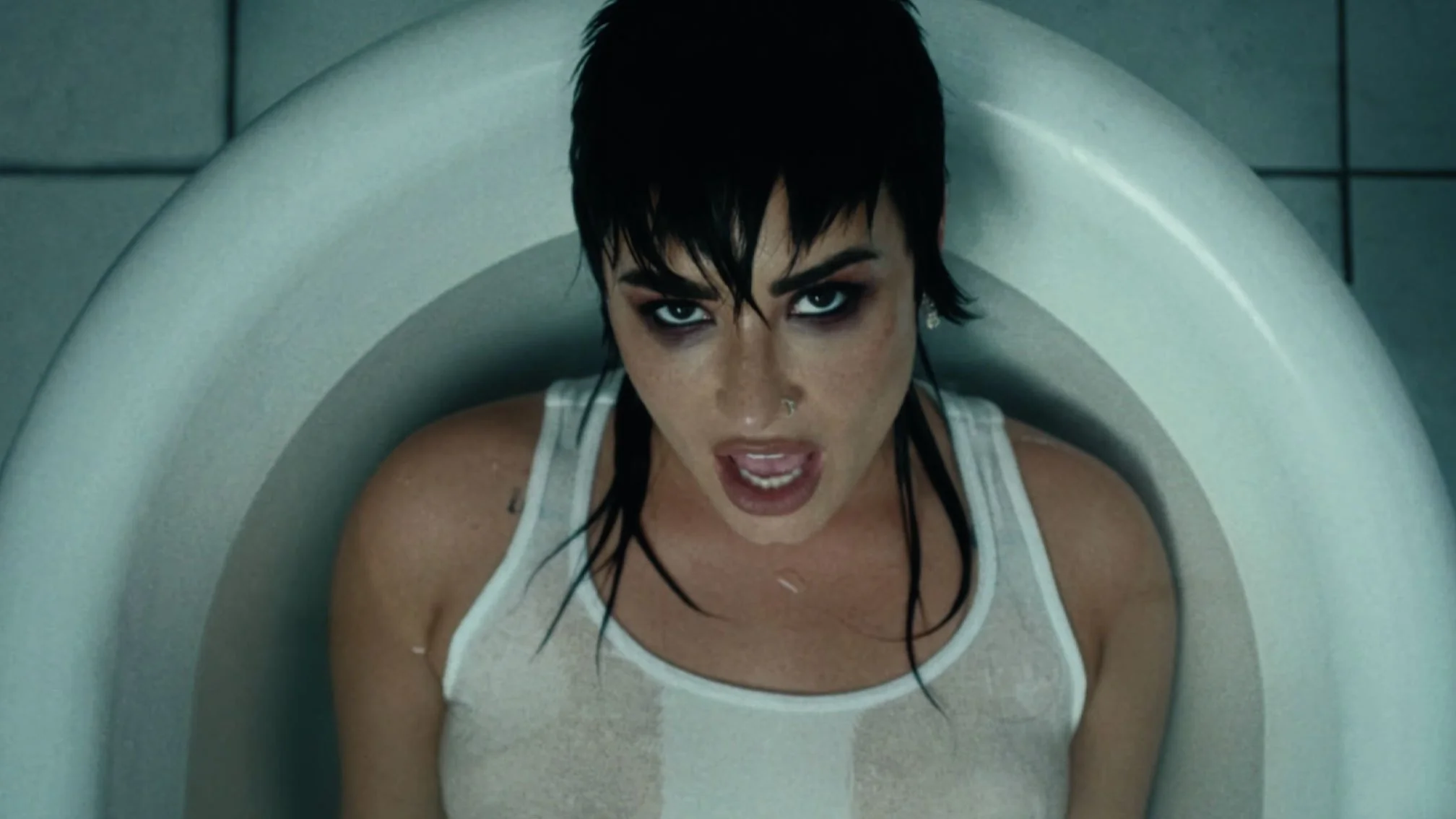Album Review: Demi Lovato, ‘Holy Fvck’
Analyses of Demi Lovato’s career and musical evolution often center and start with “La La Land.” While the cult classic pop-rock jam is an understandable and worthy entry point, ignoring the groundwork laid by “Get Back” obscures the complete picture of Lovato’s artistic odyssey. 2022 Demi Lovato is simply inconceivable without the melodic wails of 2008’s “Get Back.”
Holy Fvck, Demi Lovato’s eighth studio album, is her most daring, and, at times, most rewarding body of work to date. A rock album exploding with boundless bravado and gut-wrenching vulnerability, Holy Fvck announces itself as something more than a “genre pivot” or a “homecoming” to the Disney alum’s pop-rock roots — it’s a celebration of contradiction. Demi's latest album is a study in tension: queerness and the Christian faith, control of your own life and the demands of the pop music industry, journeying through love and rebuilding the fragments of previous attempts at self-love, etc. Throughout the record, Demi flutters through different subgenres of rock across a decidedly non-linear narrative. Holy Fvck aims high and misses a few times, but, Demi has never sounded this in control.
“Came from the trauma, stayed for the drama,” Demi chants on Holy Fvck’s hectic opener “Freak.” Assisted by YUNGBLUD, the TikTok generation’s rock music torchbearer, Demi repurposes classic circus music melodies into a grungy reclamation of one’s own self-image in spite of the discomfort that will inevitably ensue. In the song’s bridge, Demi and YUNGBLUD veer into screamo, accentuating the anguish and catharsis that anchor the song. The repetition of “came from the trauma, stayed for the trauma” plays into the slightly tongue-in-cheek dismantling of picture-perfect celebrity Demi introduced through not only “Skin Of My Teeth,” Holy Fvck’s Hole-interpolating lead single, but also, “La La Land.” It’s when she clips her trademark belts with harrowed screams, however, that Demi reaches back to the foundation of “Get Back” and evolves that song’s poppier approach into something decidedly sharper and harsher.
Introduced by “Skin Of My Teeth,” which interpolates “Celebrity Skin,” and the passable “Substance,” the world of Holy Fvck initially felt like the natural progression of the Avril Lavigne/Hilary Duff pop-rock of Demi’s Disney days. While the album eventually veers far beyond that foundation, every chapter of Holy Fvck has a direct throughline to a previous point in Demi’s career. Is the BDSM-on-the-cross imagery heavy-handed? Absolutely. But it’s not unfounded. A survivor of two of the most denigrating machines in modern entertainment — Disney Channel and mainstream Top 40 music — Demi’s freedom will read as excessive to those who ignore the unfathomably oppressive context of her formative years as a person and artist. When she sings, “I can't spoon-feed you anymore / You'll have to eat me as I am” on album standout “Eat Me,” Demi is tying together the threads of “This Is Me,” “Confident,” “I Love Me,” and “Melon Cake.” “Eat Me,” and Holy Fvck in its entirety, is the culmination of a decades-long journey through and away from outside and inner pressures. This record finds Demi singing from a place of contentment and comfortability that evaded her on previous albums. Last year’s Dancing With the Devil… The Art of Starting Over was endlessly vulnerable, but she didn’t sound as at ease on that album as she does on Holy Fvck.
Island
Widely regarded as one of the more gifted vocalists of her class, Demi finds a revived freedom in the infinitude of rock music on Holy Fvck. Her belts devolve into snarls, she transforms her tone to evoke everything from grief to taunting, and her vibrato warbles throughout the record with varying degrees of reverb. These are not the pristine radio-ready vocal performances of Dancing With the Devil, but they are infinitely more rewarding. As is often the case with those regarded as strong vocalists, Demi has a lion’s share of ballads in her discography. Holy Fvck flaunts two different approaches to ballads that pay off handsomely. “29,” a bone-chilling takedown of grooming in relationships, and “Dead Friends,” an ode to friends who have died at the hands of the same demons and diseases Demi continues to battle, are two of the strongest musical moments of Demi’s career so far.
In the face of tiresome pacing and a tracklist littered with its fair share of less memorable offerings, Holy Fvck also showcases Demi’s most interesting and nuanced explorations of sex and sexuality. “Come Together” and “Holy Fvck,” in particular, paint vivid pictures of sex as a transcendental experience. The Biblical metaphor that grounds “Holy Fvck” errs on overbearing, but the way Demi snarls “I’m a holy fvck” gives the track just enough levity to achieve true balance.
Demi has opened up a world of potential for herself with this record. Whether she continues her commentary on masturbation and Christianity (“Heaven”) or further explores her experimentation with funk-infused bangers (“Bones”), Holy Fvck is perhaps more exciting for the groundwork it lays for future albums than its own offerings. Holy Fvck is certainly an uneven affair — drab tracks like “City of Angels” and “Help Me” cause the album to drag — but it’s a record where Demi finally sounds like she has complete ownership of her sound.
Key Tracks: “Freak” | “Eat Me” | “29” | “Dead Friends” | “Come Together”
Score: 70






“This Is Why” evokes the tension between the subtle darkness of isolation and the freedom to be found in solitude.